- Arakan residents call for air raid warning systems amid surge in junta airstrikes
- Arakan’s Breathing Space (or) Mizoram–Arakan Trade and Business
- Death toll rises to 18 after junta airstrike on Ponnagyun village market
- Regime arrests dozens of Muslims in Sittwe over alleged Arakan Army links
- Over 200 IDPs in Ponnagyun struggle without shelter, food aid
Fighting deprives children of immunisations in Arakan State
A standard vaccine regimen for children to protect against certain diseases typically runs from the ages of two months to 10 years old.
21 Aug 2024
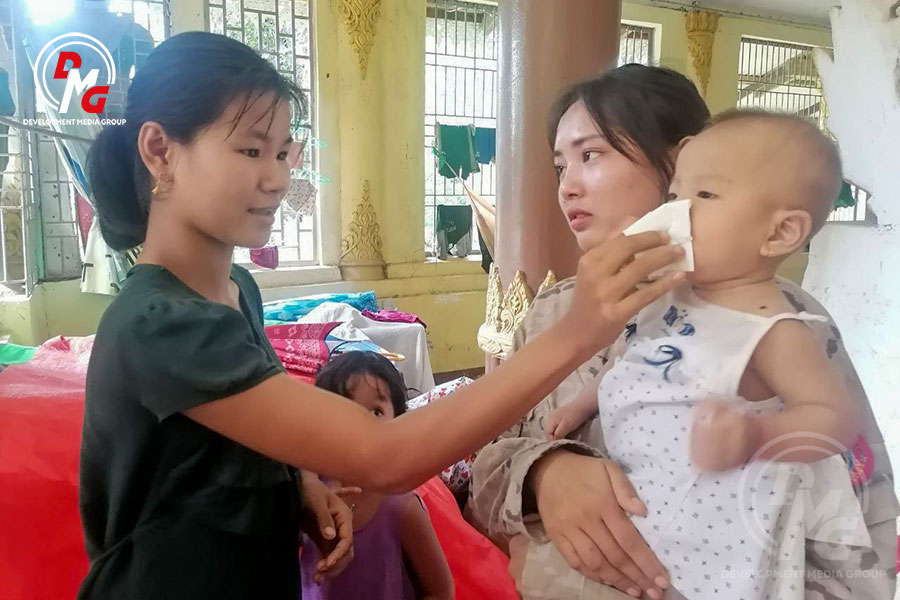
DMG Newsroom
21 August 2024, Sittwe
Parents in Arakan State have expressed concerns for the health of children who have been cut off from routine immunisations amid the intense fighting between the regime and the Arakkha Army (AA).
A mother of two from Kyauktaw Township said she is worried about the well-being of her younger child, who has missed out on several vaccines.
“When my elder son was younger, nurses came down to the villages and gave children routine vaccinations against polio, measles and so on. But my younger child has missed out on vaccines. So, I am worried,” she said.
A standard vaccine regimen for children to protect against certain diseases typically runs from the ages of two months to 10 years old.
The regime has blockaded roads and waterways in Arakan State since renewed fighting broke out between the Myanmar military and AA in November, restricting the transport of consumer goods and medicines into Arakan State.
More cases of diarrhoea, malaria and flu have been reported among internally displaced people (IDPs) in Arakan State.
One IDP in Mrauk-U Township said: “Children can’t receive vaccinations. As it is the rainy season now, many children have developed flu and malaria. There have also been more cases of diarrhoea.”
Children at IDP camps across Arakan State are particularly at risk due to shortages of medicines, and lack of access to healthcare services.
Previously, residents received free vaccines from international organisations, but since the fighting began anew, they have lost access to that humanitarian aid and other forms of support.
“As children have not received vaccines, they can develop measles, Japanese encephalitis, and flu. Children are vulnerable to Japanese encephalitis and dengue fever in the rainy season,” said one healthcare worker from Mrauk-U Township. “There have been diarrhoea outbreaks at IDP camps. Children are more vulnerable as they are not vaccinated.”
Residents have called on the ULA/AA to provide immunisations for children. DMG was unable to reach the ULA/AA’s public health department for comment.
Hundreds of thousands of people have been displaced by the fighting since November.





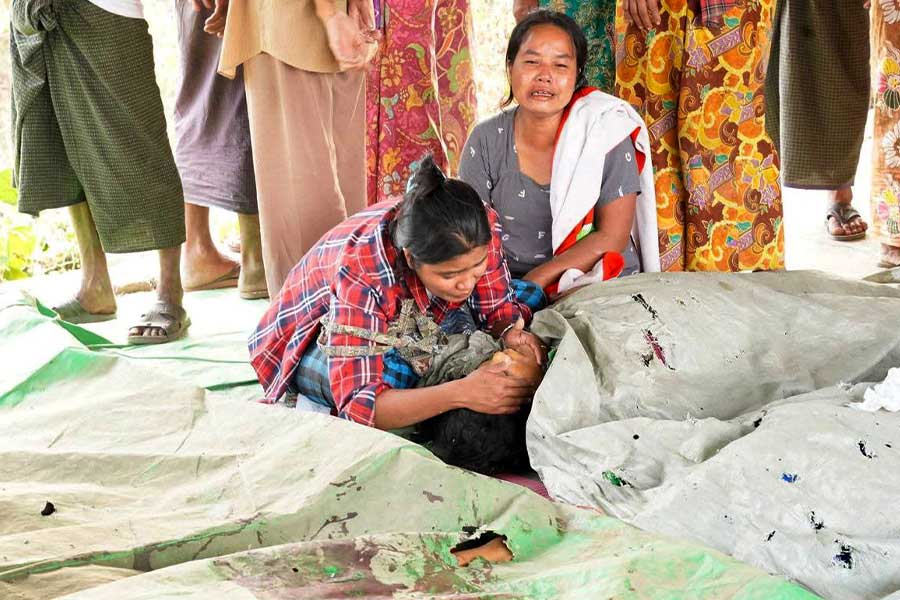
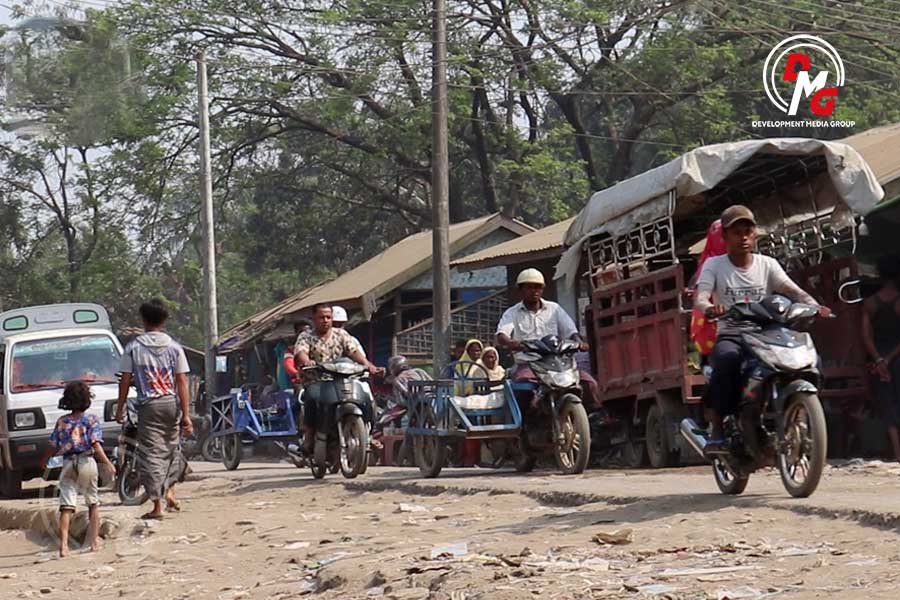
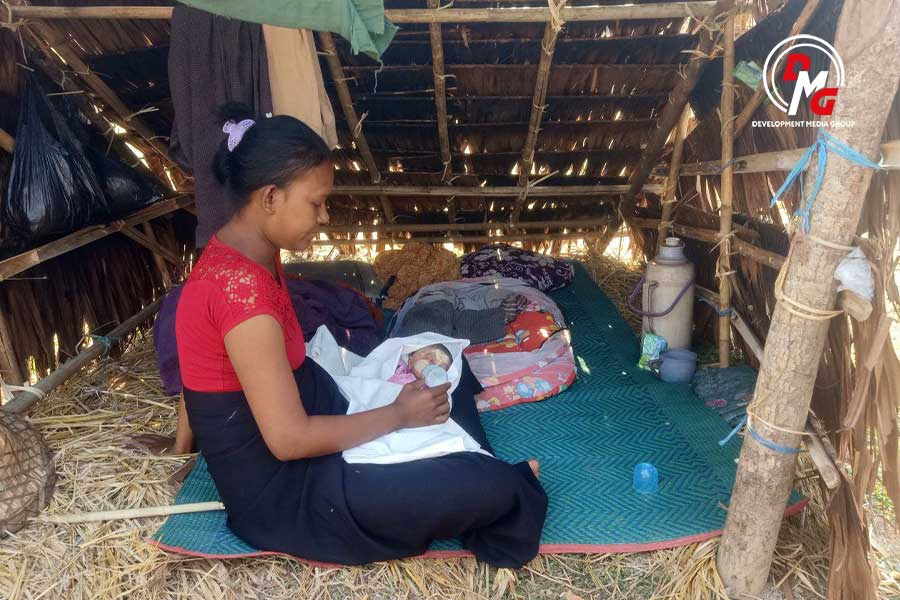
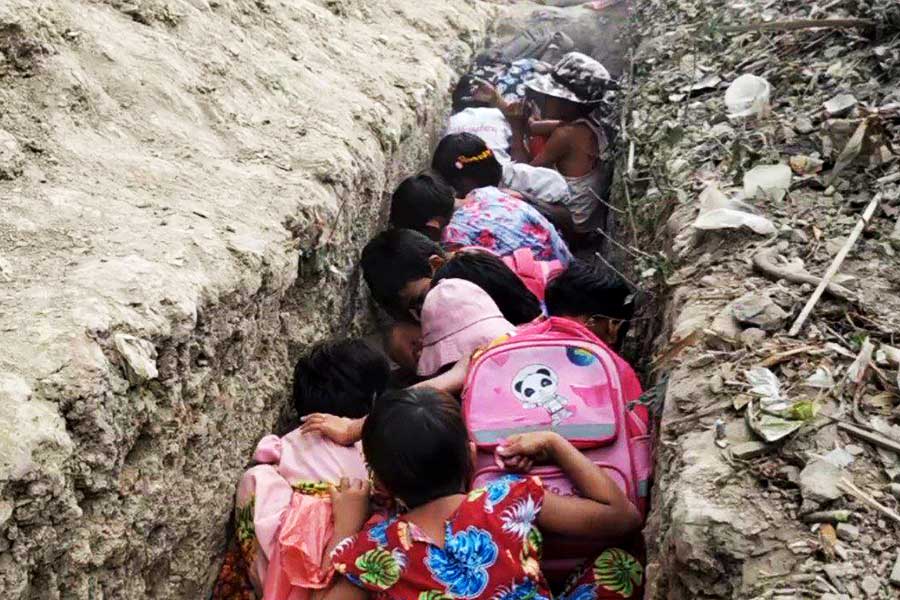








.jpg)